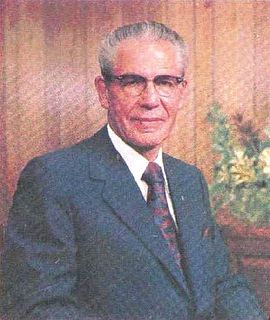A Quote by Nassim Nicholas Taleb
Prediction, not narration, is the real test of our understanding of the world.
Quote Topics
Related Quotes
How could I have thought that I needed to cure myself in order to fit into the 'real' world? I didn't need curing, and the world didn't, either; the only thing that did need curing was my understanding of my place in it. Without that understanding - without a sense of belonging to the real world - it was impossible to thrive in an imagined one.
In addition to giving comfort and joy, art also has the miraculous ability to let us live in other men's skins, to test our perceptions and beliefs against theirs, and perhaps to be changed as a result. It does this by portraying the world creatively, heightening our perception and enriching our understanding of things as they are.
Life is a test. It is only a test--meaning that's all it is. Nothing more, but nothing less. It is a test of our convictions and priorities, our faith and faithfulness, our patience and resilience, and in the end, our ultimate desires. It is a test to determine if we want to be part of the kingdom of God more than we want anything else.
Although I'm not prepared to move up my prediction of a computer passing the Turing test by 2029, the progress that has been achieved in systems like Watson should give anyone substantial confidence that the advent of Turing-level AI is close at hand. If one were to create a version of Watson that was optimized for the Turing test, it would probably come pretty close.

































